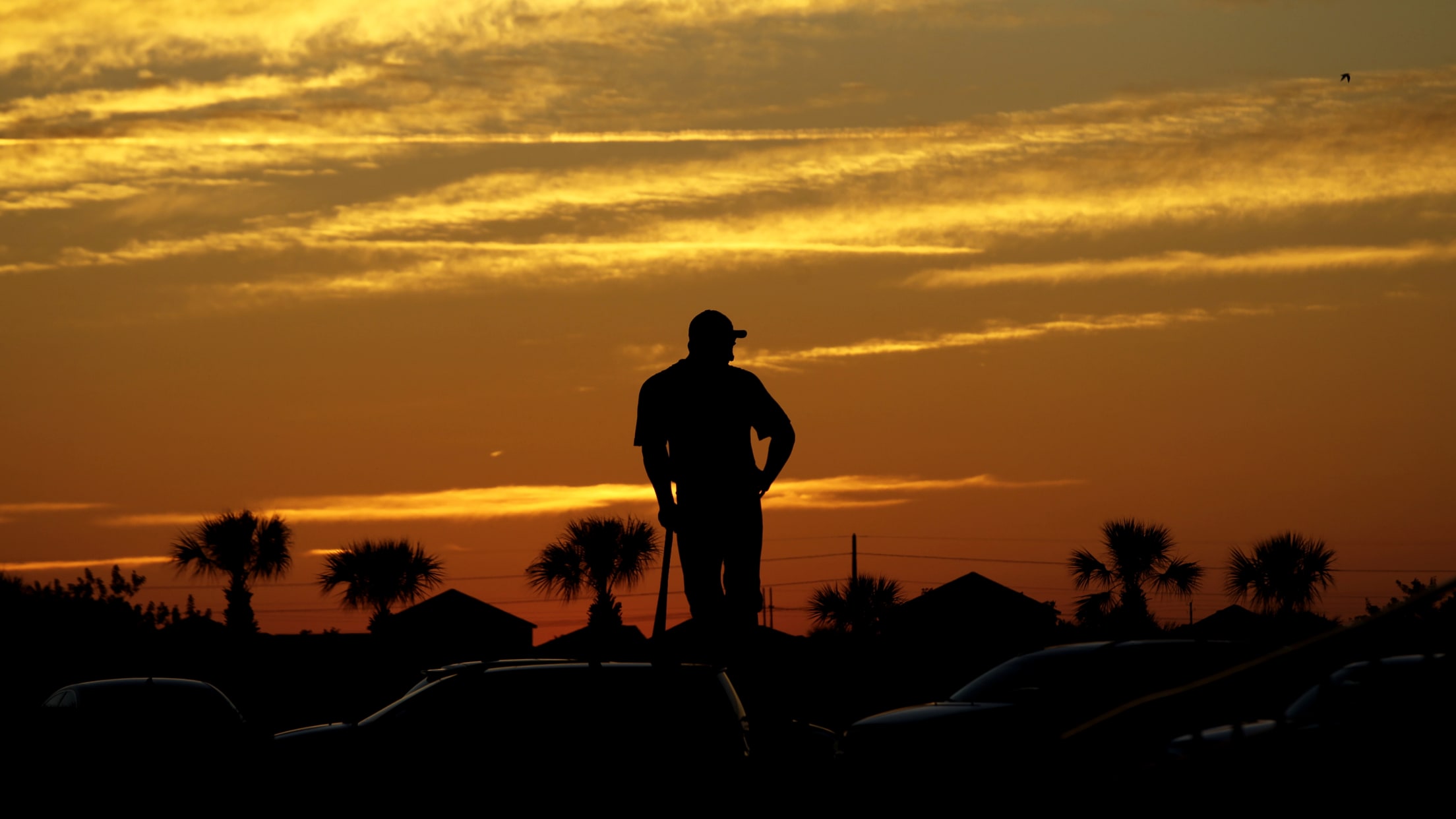How Spring Training put Ronald Reagan on the path to stardom -- and the presidency

You may know that Ronald Reagan was a diehard baseball fan. A native of northern Illinois, he never wavered in his love for the Cubs, even throwing out the first pitch at Wrigley during his presidency:
But he also owed our national pastime for much more than just a favorite team. Not only did baseball gave Reagan his first job, it also set him on the path that would turn him into a Hollywood icon, the 33rd governor of California and the 40th president of the United States -- all thanks to an opportune trip to Spring Training.

After graduating from Eureka College in 1932, Reagan headed to Chicago with dreams of breaking into sports broadcasting. He was quickly rebuffed, though, told to try his luck in a smaller market and work his way up the ladder. So he wound up at WHO in Des Moines, where he called everything from boxing to college football to Cubs games. Well, kind of: The station would get play-by-play updates from Wrigley on the wire, and Reagan would turn them into a simulated broadcast.
As you might expect from a man with a lifetime of oratory in front of him, he was pretty good at it ... even when things didn't go quite as planned. In the ninth inning of a particularly tense Cubs-Cardinals game, the telegraph feed went out, forcing Reagan to ad lib his way through Augie Galan's at-bat against Dizzy Dean. His solution? Stall for time with a heart-pounding and completely fake account of foul ball after foul ball until the updates finally resumed. "Galan popped out on the first pitch," Reagan recalled in his autobiography. "Not in my game he didn't. He popped out after practically making a career of foul balls." (H.R. Gross, who partnered with Reagan in the booth before becoming an Iowa congressman, claimed that his calls were so enthralling that some fans were convinced he was broadcasting live from Chicago.)
Still, it wasn't the most glamorous work, and Reagan aspired for more -- especially in the winter, when baseball was on hiatus and the Iowa weather wore on him. So, prior to the 1937 season, he went for broke, begging the Cubs to let him tag along for the team's Spring Training on Catalina Island off the coast of Los Angeles. (Yes, like the wine mixer.)
Chicago eventually said yes. Reagan was bound for California, and world history was changed forever.

While out west, Reagan reconnected with Joy Hodges, a friend from Des Moines who'd moved to Hollywood to pursue a singing career. He half-jokingly mentioned to her that he'd love to break into the movie business, and Hodges, firmly establishing herself as the greatest friend humanity has ever seen, followed up by landing him a screen test with Warner Bros. Reagan went, but as a no-name kid from the Midwest he didn't think much of it ... until he returned to Iowa and found a six-month, $200-a-week contract waiting in his mailbox.
He made his big-screen debut later that year, playing a radio announcer in "Love Is On the Air," and over the next four years he appeared in a whopping 28 films -- including 1941's "Knute Rockne, All-American," where his portrayal of George "The Gipper" Gipp turned him into a star. (The Gipper wouldn't be the last time he played an iconic sports figure: The photo above was taken during a pitching lesson from Indians legend Bob Lemon, who was tasked with helping Reagan portray Hall of Fame hurler Grover Cleveland Alexander in "The Winning Team.")
From there, you know the rest: That stardom -- and his way with words -- propelled Reagan to the governorship of California, which in turn propelled him to the presidency. And to think, he had some exhibition baseball to thank.




